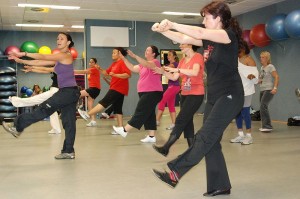With 2012 being the year of the Olympics, many of us will have noticed the various campaigns pushing us to get out and get fit. We receive regular updates on the benefits of exercise to our health and have become increasingly familiar with phrases like ‘30 minutes a day’ and ‘at least 3 times a week.’ Now, there is growing evidence to suggest that regular physical activity may also benefit Multiple Sclerosis (MS) sufferers – lessening their fatigue, aiding walking mobility and improving their quality of life.
 MS is one of the most common neurological disorders affecting young adults today. Approximately 250 million people from around the world currently suffer from this disease; including some well-known faces from the Olympic sporting community itself. Some may recall the 4-times Olympic Gold medallist, Betty Cuthbert for instance, who was diagnosed with MS back in her thirties.
MS is one of the most common neurological disorders affecting young adults today. Approximately 250 million people from around the world currently suffer from this disease; including some well-known faces from the Olympic sporting community itself. Some may recall the 4-times Olympic Gold medallist, Betty Cuthbert for instance, who was diagnosed with MS back in her thirties.
MS is a chronic autoimmune disease, where the bodies own immune system targets and damages the sufferers nervous tissue. The disease specifically targets the fatty covering which surrounds most nerve fibres (called myelin). Myelin is necessary for nerve cells to communicate efficiently over long distances, meaning that nerve fibres of MS sufferers are significantly less efficient at sending messages around the body. As a result, MS sufferers present with a range of symptoms, depending on where the damage is located, including fatigue, muscle weakness and reduced mobility.
Quite understandably, MS sufferers therefore tend to be less active than the general population. Approximately 75-95% of patients with MS report fatigue as their most common symptom, with at least half of suffers classifying it as being the most troublesome. To date no medicines have been approved by drug licensing bodies to treat MS-related fatigue. A number of studies trialling exercise therapy in MS sufferers, however, have yielded promising results…
A few years back in 2009, two independent research groups reviewed the use of physical activity to treat MS-associated fatigue and mobility problems. Maria Garrett and Susan Coote, based at Limerick University’s department of Physiotherapy, reviewed 19 related studies which took place between 2004 and 2008. Whilst Robert Motl and Erin Snook from the University of Illinois, drew evidence from 22 further studies spanning a period of more than 40 years. The type of exercise both groups were interested in consisted of regular and supervised exercise regimes which progressed in intensity over several weeks.
Crucially, the main conclusions that both Garrett’s and Motl’s groups drew from their assessments were that formal exercise programmes can have a positive impact on fatigue and walking mobility in patients with MS. In addition, no harmful effects or exacerbation to symptoms were seen in any of the studies, and patients generally felt their quality of life was improved by the therapy.
 Despite a few limitations (such as small sample size), which may have biased the studies, both research groups believed that there was sufficient merit in these findings to justify further research into the area. In their discussions, Garrett and Motl both recommend the development of longer, larger and more controlled trials involving the use of exercise therapy on patients with MS. Unfortunately, while it seems this research may be well worth carrying out, no such studies have yet appeared.
Despite a few limitations (such as small sample size), which may have biased the studies, both research groups believed that there was sufficient merit in these findings to justify further research into the area. In their discussions, Garrett and Motl both recommend the development of longer, larger and more controlled trials involving the use of exercise therapy on patients with MS. Unfortunately, while it seems this research may be well worth carrying out, no such studies have yet appeared.
However, just this year Robert Motl from the University of Illinois headed a pilot study on exercise intervention for MS. This research, published in the March 2012 edition of the Journal of Neurologic Physical Therapy, investigated the effects of an 8-week exercise programme on 13 patients with MS. This regime involved a mixture of aerobic, resistance and balance-based exercises supervised by an experienced physiotherapist. Promisingly, all the patients involved in this trial reported improvements in their walking mobility. Objective measures showing increased walking speeds also supported patient feedback. Looking at these results, one would certainly hope this trial will be a precursor to research on a larger scale.
So perhaps this year, MS sufferers could actually benefit from ‘jumping on the Olympic bandwagon’ to get active and exercise. After all, research so far has implied no harmful effects of using exercise therapy for patients with MS. Not to mention the small but promising number of trials, we have discussed here, which indicate that physical activity may in fact aid fatigue and walking mobility in suffers. Given such evidence, healthcare professionals may also look towards encouraging a change in the behaviour of their MS patients.
Meanwhile, I for one will certainly have my fingers crossed with the hope that Motl’s study is a sign that further and larger-scale research into this area is now on its way…
Post by: Megan Barrett